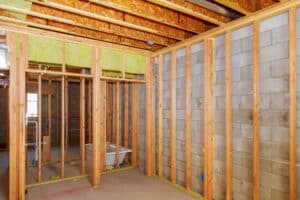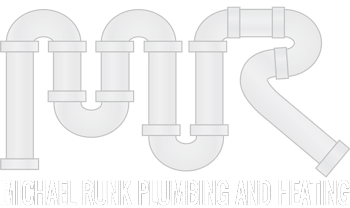Refinishing a basement can significantly enhance the functionality and value of your home. Whether you plan to transform it into a living space, a home office, or a recreational area, ensuring proper plumbing is essential. This blog will guide you through the key considerations and offer useful tips to successfully incorporate plumbing into your refinished basement project.

Evaluate Existing Plumbing Infrastructure
Before diving into any plumbing project, it’s crucial to evaluate the existing plumbing infrastructure in your basement. Determine the location of the main water line and sewer lines to understand their accessibility and potential impact on your renovation plans. This evaluation will help you determine whether you can tap into existing lines or if you’ll need to install new ones.
Plan the Layout
Careful planning is vital to optimize the functionality and efficiency of your basement plumbing system. Consider the various areas that require plumbing, such as bathrooms, laundry rooms, wet bars, or utility sinks. Determine the optimal locations for fixtures and appliances based on their intended use and proximity to existing plumbing lines. Keep in mind local building codes and regulations that may dictate specific requirements for each area.
Determine Plumbing Needs
Assess your specific plumbing needs and prioritize them accordingly. Consider the number of bathrooms, sinks, showers, or other fixtures you plan to incorporate into your basement. This evaluation will help you determine the size and capacity requirements for your plumbing system. Consulting with a professional plumber can provide valuable insights and ensure you don’t overlook any essential elements.
Proper Ventilation
Proper ventilation is crucial to prevent moisture buildup and maintain good air quality in your refinished basement. Ensure your plumbing system includes adequate ventilation to eliminate odors and prevent the growth of mold or mildew. Vent pipes should extend through the roof to create a pathway for stale air to escape while allowing fresh air to enter.
Waterproofing
Basements are susceptible to moisture-related issues, so it’s essential to include proper waterproofing measures in your plumbing plans. Install a sump pump and consider perimeter drainage systems to keep your basement dry and prevent water damage. Implementing waterproofing strategies from the beginning will protect your investment and ensure the longevity of your plumbing system.
Accessible Shutoff Valves
Make sure your plumbing system includes easily accessible shutoff valves. These valves allow you to isolate specific areas or fixtures in case of a leak or maintenance requirement. Placing shutoff valves near fixtures and appliances will make it convenient to turn off the water supply without disrupting the entire house.
Professional Installation
While some plumbing projects can be DIY-friendly, it is highly recommended to hire a professional plumber for basement plumbing installations. A licensed plumber has the expertise to navigate complex systems, ensure compliance with local codes, and provide high-quality workmanship. Investing in professional installation will save you time, prevent costly mistakes, and give you peace of mind.
Start Planning Today
Including plumbing in your refinished basement project requires thoughtful planning and careful execution. Work with the plumbing experts at Michael Runk Plumbing and Heating to ensure that your new bathroom is completed correctly and in a timely manner. We have decades of experience as a master plumber and know what it takes to create a well-designed and properly installed plumbing system. Contact us today to see how we can help with your next refinishing project.
